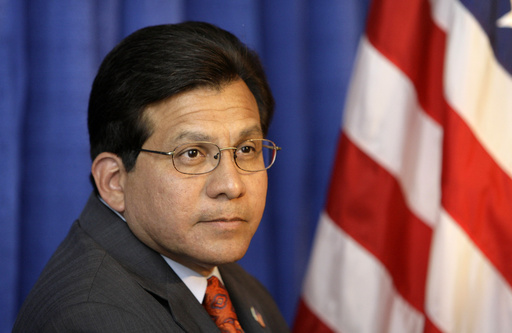Dick Cheney, a prominent career Republican known for his support of the Iraq War, made waves by endorsing Democrat Kamala Harris for the White House. Despite their history of conflicts with Democrats, Cheney and former Attorney General Alberto Gonzales are choosing to support Harris over Republican Donald Trump, reflecting a shift within the Republican Party’s establishment following Trump’s rise to power.
The endorsements from Cheney and Gonzales highlight the growing concerns among some Republicans about Trump’s potential return to office, leading them to break party lines to oppose their own nominee for the presidency. This unexpected support for Harris provides her campaign with an opportunity to expand its base of supporters.
While figures like George W. Bush have not followed suit in endorsing Harris, the Democratic candidate has welcomed endorsements from prominent Republicans who prioritize opposing Trump over aligning with Harris’s policies. The backing of Republicans like Gonzales may encourage other anti-Trump Republicans to vote for Harris in the upcoming election.
The influence that these cross-party endorsements will have remains uncertain, as Cheney’s polarizing persona and lingering tensions within the GOP could overshadow their support for Harris. Despite receiving support from unexpected quarters, such as Cheney and Gonzales, Harris faces criticism and skepticism, as seen in comedian Jon Stewart’s mocking of Cheney’s endorsement on “The Daily Show.”
The endorsements from Cheney and Gonzales signal a broader ideological divide within the Republican Party, with Trump’s presidency representing a departure from traditional GOP values. Cheney’s criticism of Trump’s foreign policy and the aftermath of the Capitol riot further exemplify the rift within the party.
The Cheneys’ endorsements and Gonzales’s opposition to Trump underscore the challenges facing the Republican Party as it grapples with its identity and future direction. As Republicans navigate their relationship with Trump and the party’s evolving landscape, the endorsements from prominent Republicans like Cheney and Gonzales may influence others within the party to reassess their support for Trump.
Despite their controversial histories and past disagreements with Democrats, the endorsements from Cheney, Gonzales, and others reflect a growing disillusionment with Trump within the Republican Party, signaling a potential shift in the party’s dynamics and priorities moving forward.
Home Politics Live Elections Democrats formerly criticized Dick Cheney, now supporting Harris. Will his endorsement be...
